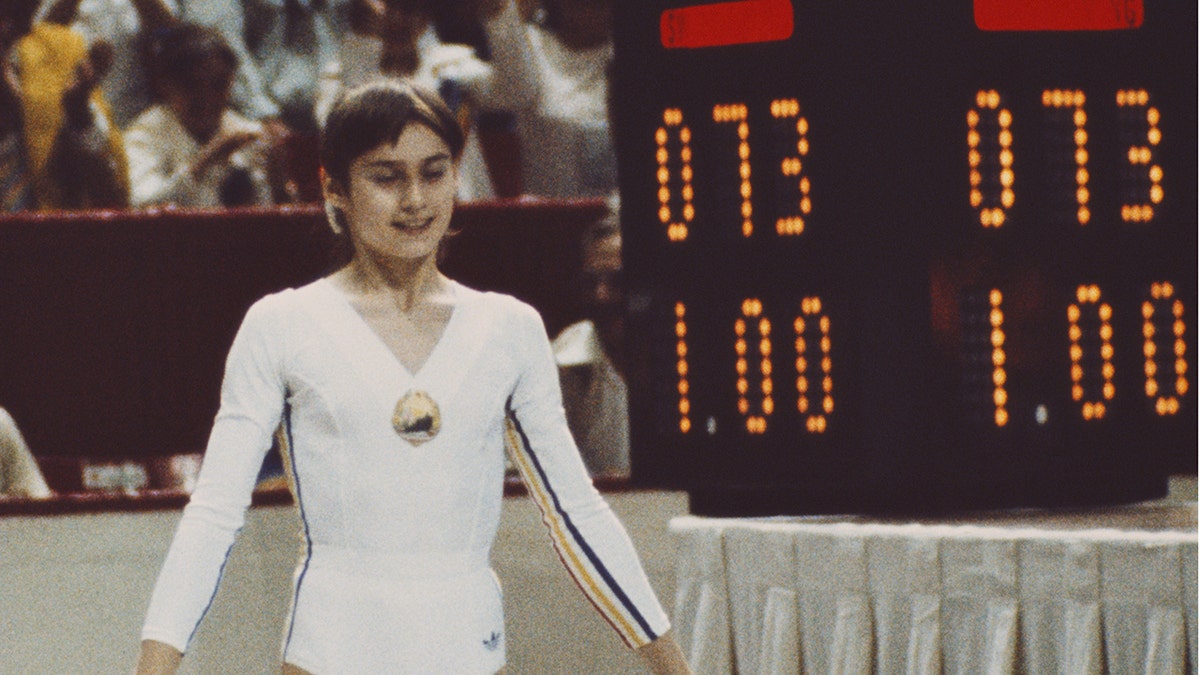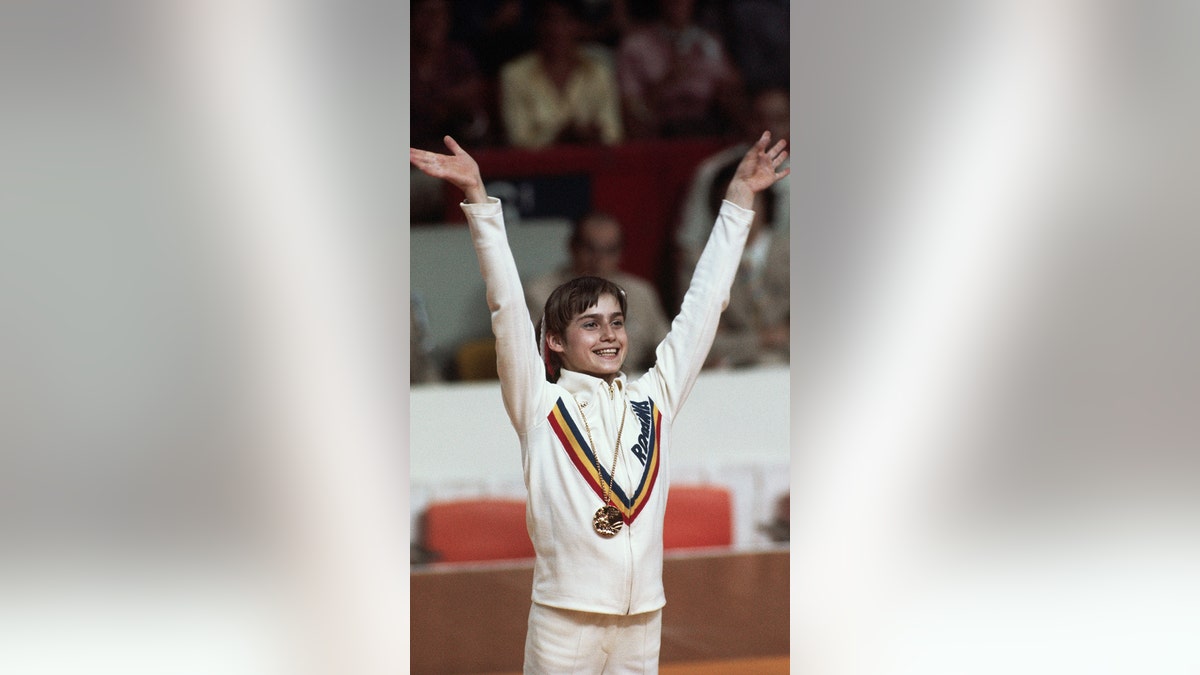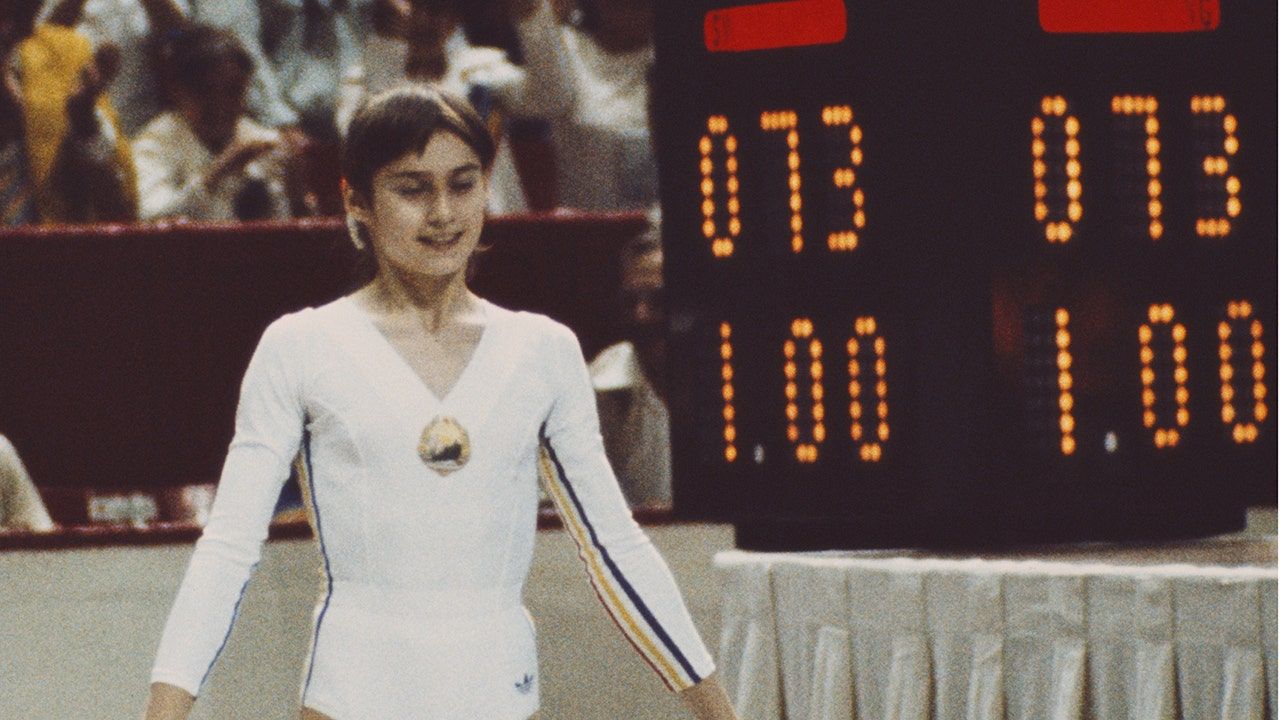Romanian gymnast Nadia Comaneci redefined perfection on this day in history, July 18, 1976, when she earned the first perfect 10 in Olympic gymnastics history.
Competing on the uneven bars apparatus during the compulsory team event portion of the women's artistic gymnastics competition, Comaneci made history in less than 30 seconds.
“Chris, this could be the highlight of the compulsory event. She is one of the strongest and best technical gymnasts I've ever seen,” former Olympic gymnast Cathy Rigby told commentator Chris Schenkel during the U.S. televised broadcast of the event.
ON THIS DAY IN HISTORY, JULY 17, 1945, THE POTSDAM CONFERENCE BEGINS, THE LAST ALLIED SUMMIT AFTER WORLD WAR II
At that time, the team competition consisted of a “compulsory” and an “optional” round for each apparatus; the compulsory round consisted of a specific choreography performed by each gymnast. The compulsory round was eliminated starting with the 2000 Summer Olympics.
Throughout Comaneci's routine, Rigby can be heard praising the 14-year-old gymnast's skill.
Nadia Comaneci earned the first perfect 10 in Olympic history on this day in history, July 18, 1976. (Frank Barratt/Getty Images)
“Beautiful routine, beautiful, and the audience loves it,” exclaimed Rigby after Comaeci's dismount.
The judges gave Comaneci's routine a 10, the first ever awarded in an Olympic competition.
The perfect 10 was something so unprecedented that not even the electronic scoreboard was able to correctly display the score.
Comaneci's 10 was displayed as 1.00, as there were only three digits on the screen.
ON THIS DAY IN HISTORY, MAY 28, 1888, JIM THORPE, 'THE WORLD'S GREATEST ATHLETE', WAS BORN
Romania won the silver medal in the team event, finishing behind gymnastics powerhouse the Soviet Union (the Soviet Union has won the women's artistic gymnastics team event at each of the nine Olympic Games it has participated in, the Olympics website notes).
Comaneci would repeat the perfection six more times at the 1976 games, scoring perfect 10s on the balance beam in the optional team event, the all-around final, and the individual apparatus final, and on the uneven bars in the optional team event, the all-around final, and the individual apparatus final.

The scoreboard displayed Comaneci's perfect 10 as “1.00” since there were only three digits on the device. (Don Morley/Getty Images)
Additionally, Comaneci would take home a bronze medal in the floor exercise.
According to her profile on the Olympic website, she placed fourth in the individual vault apparatus final.
Soviet gymnast Nellie Kim also earned a perfect score of 10 at the 1976 Games: Kim's vault in the all-around final and floor routine in the individual apparatus final were both deemed perfect by the judges in Montreal.
ON THIS DAY IN HISTORY, AUGUST 9, 1936, JESSE OWENS WINS HIS FOURTH GOLD AT THE BERLIN OLYMPIC GAMES
Like Comaneci, Kim also won three gold medals in Montreal.
She won the team floor exercise and finished second behind Comaneci in the individual all-around competition.
Comaneci would appear at the 1980 Moscow Olympics, winning two additional gold medals on balance beam and floor exercise.
She tied for second in the individual all-around final with East German gymnast Maxi Gnauck, and Romania won silver in the team competition.

Romania's Nadia Comaneci, center, and Soviet Nellie Kim, right, both earned a perfect score of 10 during the 1976 Olympics. Comaneci edged out Kim in the all-around final, seen here. (Fake Images)
After the 1980 Olympics, Comaneci retired from competitive gymnastics.
She defected to the United States in 1989, the Olympic website said, eight years after her coaches Bela and Marta Karolyi did so while on tour with her in the United States.
She married American gymnast Bart Conner in 1996, the couple's website states.
The two run the Bart Conner Gymnastics Academy in Oklahoma.
ON THIS DAY IN HISTORY, FEBRUARY 22, 1980, THE U.S. MEN'S OLYMPIC HOCKEY TEAM SURPRISES THE SOVIETS IN A “MIRACLE ON ICE”
None of Comaneci's achievements at the 1976 Olympics could be replicated today.
CLICK HERE TO SUBSCRIBE TO OUR LIFESTYLE NEWSLETTER
In addition to the elimination of compulsory competition, Comaneci – at 14 – would have been too young to compete at the Olympics had they taken place in the 21st century.
In 1997, the International Gymnastics Federation ruled that gymnasts had to be 16 in the year of competition to be eligible to compete in the Olympics, the group's website says.

Nadia Comaneci won three gold medals, one silver and one bronze during the 1976 Olympic Games in Montreal. (Fake Images)
In addition, the gymnastics scoring system was completely overhauled after the 2004 Olympics, leading to numerous controversies related to scoring.
For more lifestyle articles, visit www.foxnews.com/lifestyle
Now, elite gymnasts are given a specific difficulty score for each routine, and are graded on their execution of the routine out of 10.
These two numbers are combined to get the final score.
CLICK HERE TO GET THE FOX NEWS APP
The 10-point system is still used at other levels of gymnastics competition, including the NCAA and Junior Olympics.












